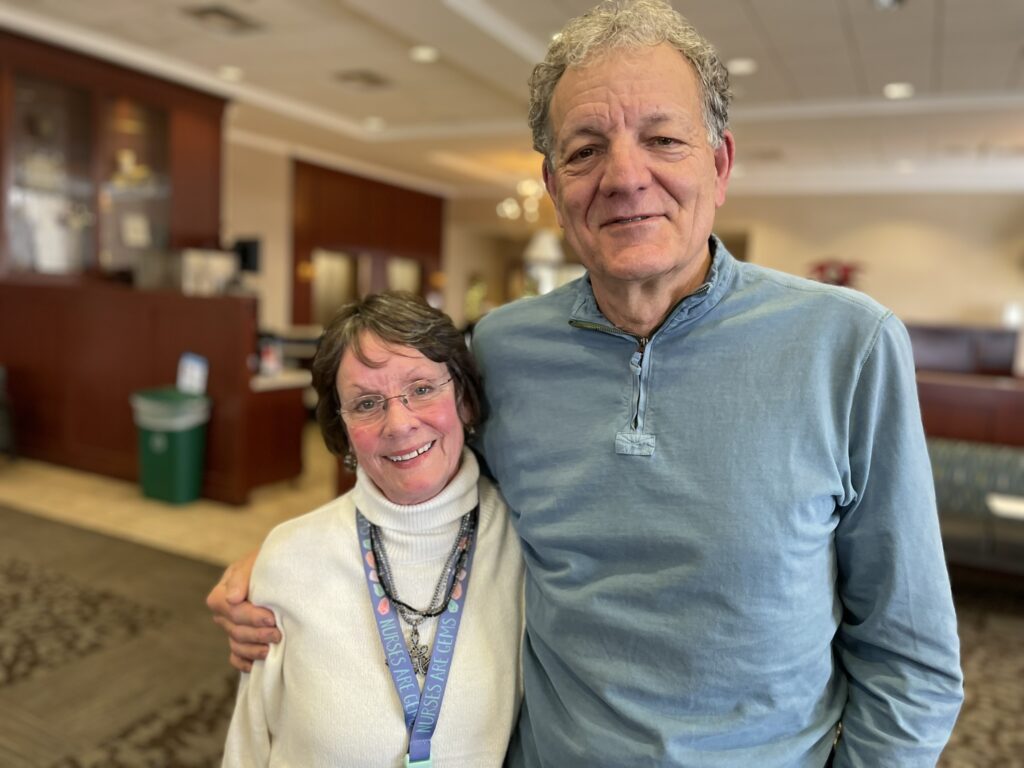The University of Nebraska Medical Center’s liver failure and transplant program would not exist today without the longstanding contributions of Laurie Salonen. A transplant coordinator, Salonen founded the program alongside Byers “Bud” Shaw, MD, in 1985 and then championed its success. This past January – 38 years after joining the med center – Salonen retired, leaving behind a legacy that is unmatched.
Early days
Salonen knew early in her career she wanted to help children and went on to work in the pediatric intensive care units at CS Mott Children’s Hospital at the University of Michigan and Children’s Hospital University of Illinois in Chicago.
“My favorite patients were the teenagers,” Salonen said. “They’re very resilient because they don’t want to be sick. Kids just want to be normal – they want to play and interact. That’s why I ended up in pediatrics.”
It was luck that brought her to the University of Pittsburgh Medical Center in 1982, she said, where she served as a clinical nurse specialist for all surgical patients in the pediatric hospital. The facility had established the nation’s first pediatric liver transplant program. Because the procedure was new and somewhat controversial then, there was not an organized system in place to guide nurses on how to provide a standard of care.
“Here were these very sick kids who had a huge operation, and none of the nurses knew what to do,” she said. “They brought them back and stuck them in a bed, and that was that – it was chaotic. I advocated that they needed somebody to teach nurses how to take care of these patients and support their families.”
Her passion for patient care led her to establish the first liver transplant coordinator role for the hospital.
Joining UNMC

Salonen went on to develop this same role at UNMC (prior to the hospital merger that created Nebraska Medicine) when she and Dr. Shaw were recruited to establish the liver failure and transplant program in 1985. The program was only the fifth of its kind in the country, and it quickly became the second busiest. Salonen played an integral role in the program’s success.

“Laurie was probably the most important individual in the whole program,” Dr. Shaw said. “Performing a liver transplant is easy compared to a lot of things she did.”
From the beginning, Salonen established a culture among transplant nurses centered on her core belief: always do what’s right for the patient.
The patient-first culture she created is a primary reason the liver transplant program is so highly respected among other health care systems across the country. Many have modeled their transplant coordinator roles after the one she built.
“What she does for patients is above and beyond,” transplant coordinator April Romans said at the time of Salonen’s retirement. “She makes relationships with them and knows their history.”
In 2014, UNMC’s Salonen moved over to Nebraska Medicine because more than 80% of her job activities involved clinical care.
This spring, an anonymous donor established the Nebraska Medicine Laurel Williams Salonen Endowed Nursing Fund to support professional development for solid organ transplant coordinators and nursing staff. To donate, visit nufoundation.org.
